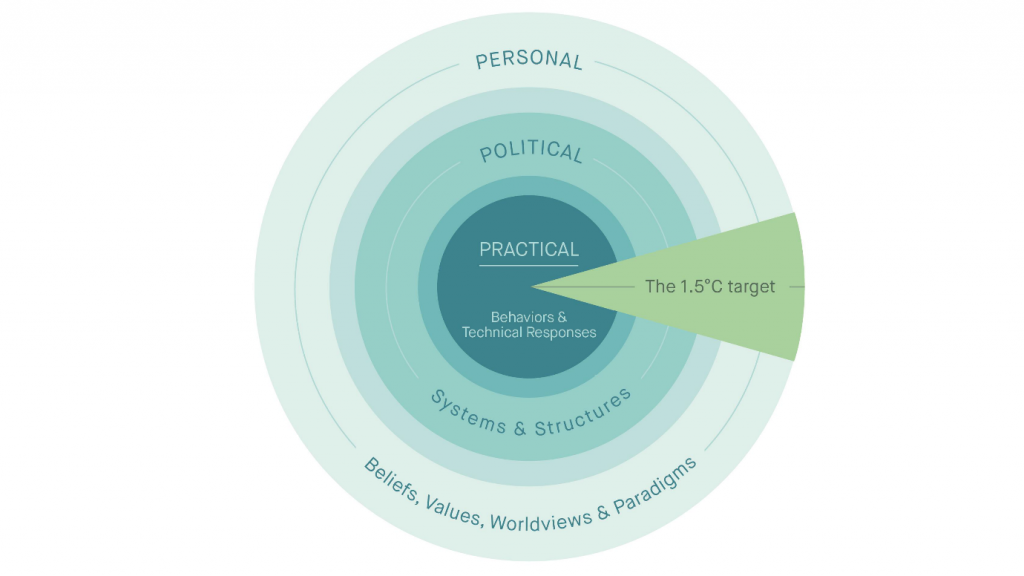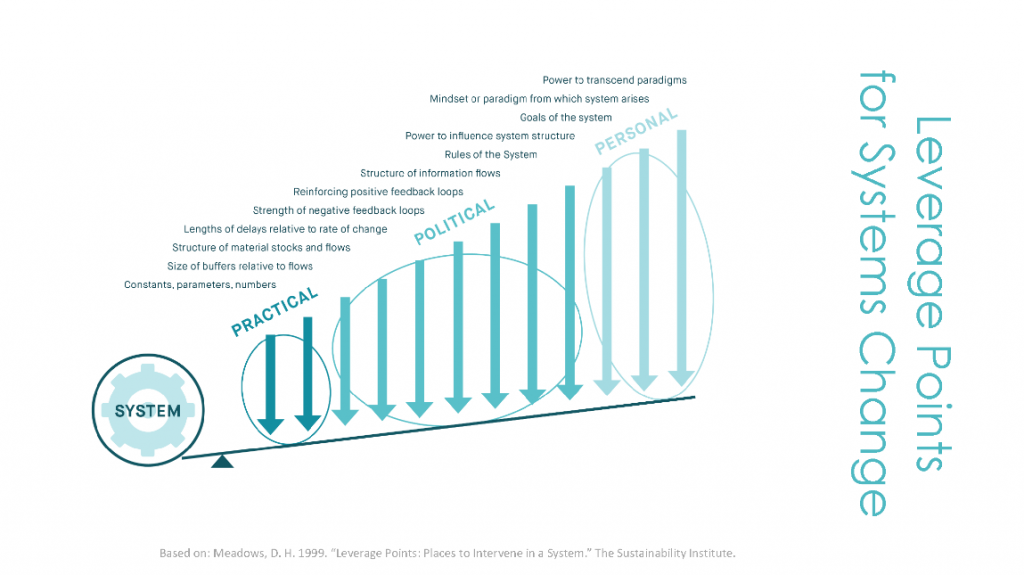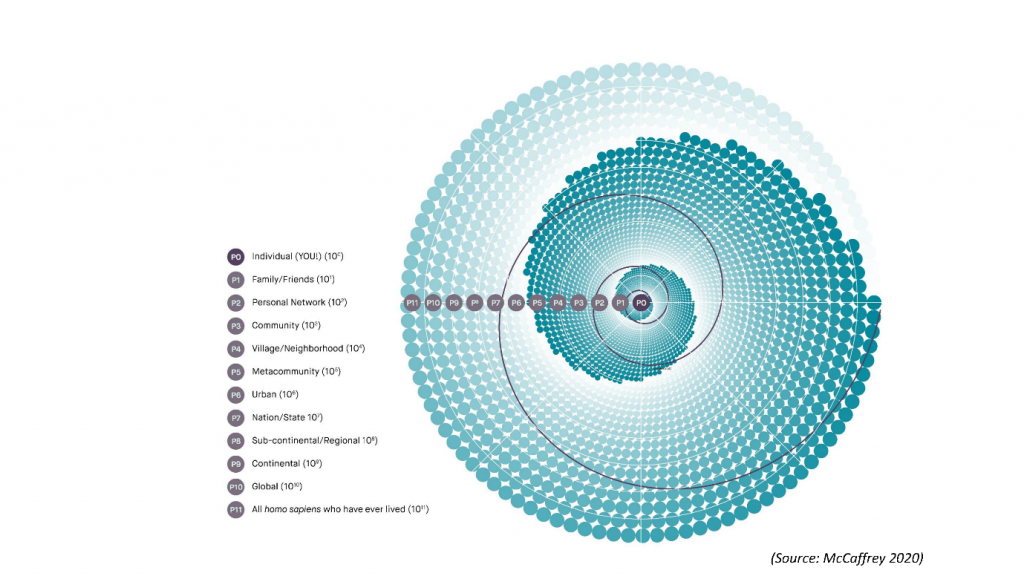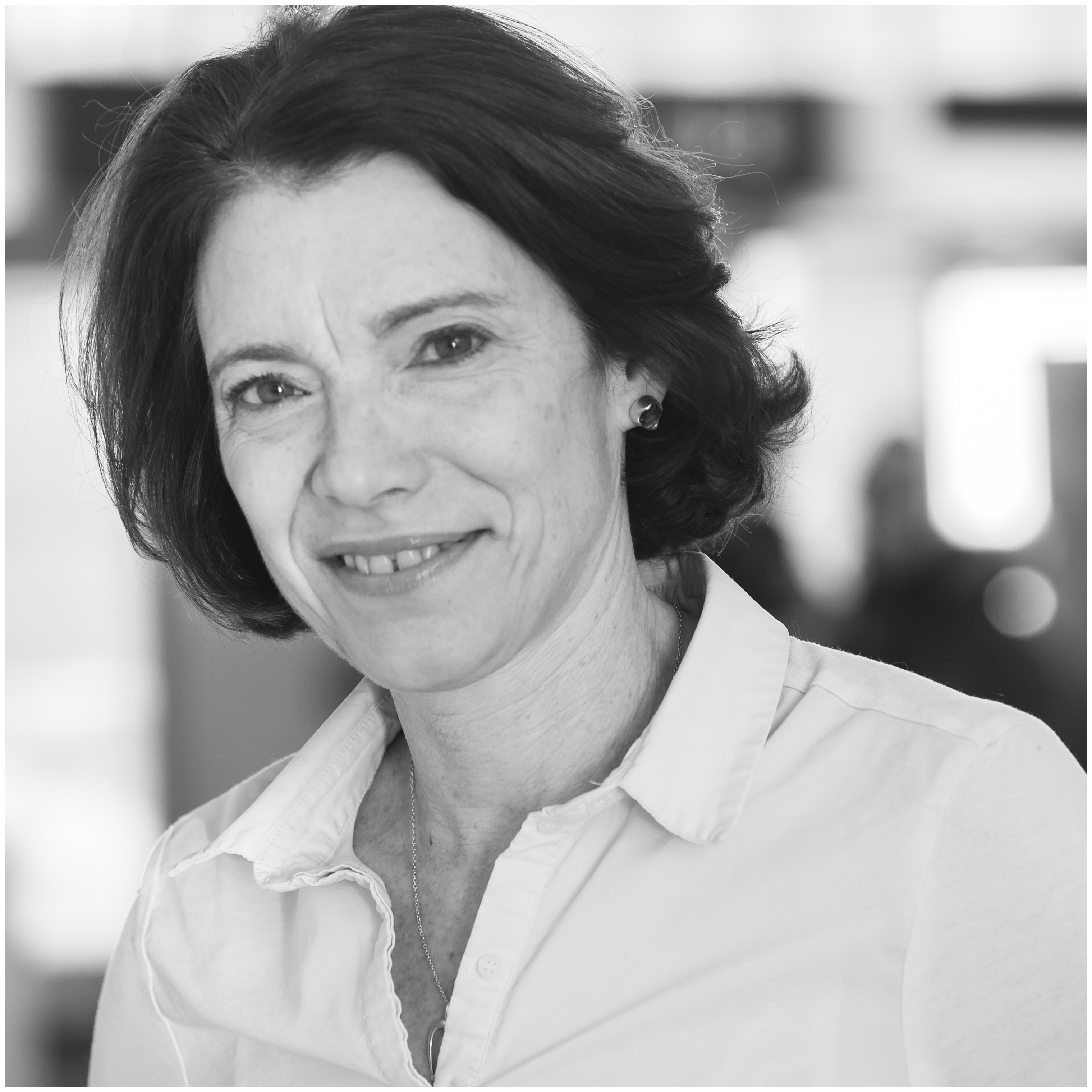
This article is part of the ISC’s Transform21 series, which features resources from our network of scientists and change-makers to help inform the urgent transformations needed to achieve climate and biodiversity goals.
How do we transform at the scope, scale, speed and depth that is called for by climate science? How do we do so in an equitable, ethical and sustainable manner? And how does individual change relate to collective change and systems change?
An answer to these questions lies at the heart of the big question facing us all: can we meet the ambitions of the Paris agreement and have a chance of staying within the 1.5 degree target?
Five years since the Paris Agreement was adopted, it’s clear that we cannot leave this to chance: we need actionable strategies that creates deep and lasting equitable and sustainable transformations. Countries worldwide are currently preparing revised nationally determined contributions (NDCs) that set out how they will reduce greenhouse gas emissions. With these commitments being drafted at the same time as economic recovery plans for emerging from the COVID-19 pandemic, ‘build back better’ has become a common refrain. However, if decades of working towards climate goals have taught us anything, it’s that transformations to a more just and more sustainable world are not going to be easy – they’re going to be messy and difficult. And to design the right strategy for transformation, we first have to be sure that we’re addressing the right problem.
Technical and adaptive challenges
Change theorist Ronald Heifetz distinguishes between two different types of challenges that characterize change: technical challenges and adaptive challenges. Technical challenges are those that can be diagnosed and solved by applying or improving established knowledge, know-how and expertise. Adaptive challenges may include technical problems but also require changes in values, beliefs, roles, relationships and approaches. An adaptive challenge, such as reducing greenhouse gas emissions, require a change in mindset. This starts with an acknowledgement that things need to change, that multiple people will need to be involved across different scales and timeframes and that a simple fix is not going to be possible.
This is an important distinction: if we approach an adaptive challenge as though it’s just a technical problem, we’re missing the point. Addressing an adaptive challenge as if it were only a technical problem will lead to failure.
Five years on since the Paris agreement, we know that we’re transgressing multiple planetary boundaries, and heading towards tipping points that could create cascading, unpredictable and dangerous change. Avoiding the most harmful effects of climate change – and doing so in a way that is just and equitable – will require deliberate transformations based on universal values. The transformations we need will be aided by technology, but – crucially – they are not just technical challenges, they are adaptive challenges. They will require deep, physical and/or qualitative changes to structures and forms, but also to meaning-making: the way that we make sense of events, relationships, and ourselves. They require us to adapt to the very idea that we can individually and collectively influence the future. Transformations will mean unleashing the power of human potential to care about change, to commit to change, and to effect change for a better life. This deeper dimension is what motivates many community leaders and activists to work tirelessly for change.
Three spheres of transformation
To help think about these different dimensions of transformation, I use the framework of the three spheres of transformation.

The practical sphere, or ‘core’, contains the behaviours and technical responses needed to meet goals and targets, such as the Sustainable Development Goals. There are lots of possibilities in this sphere, but as we have seen, there has been a wide gap between ambitions and progress.
That’s why we need to take into account the political sphere, which is about the systems and structures: the social and cultural norms, rules, regulations, and institutions, or all of the ways that we collectively organize society, which either facilitate or hinder transformations in the inner practical sphere. It is in the political sphere where we often see conflicts, such as lack of agreement around appropriate targets. But it’s also where we get social movements promoting alternatives . However, as we’ve seen with negotiations around climate change agreements and energy transitions, we can get stuck in the political sphere for decades. That’s often because we’re not paying attention to the personal sphere. This sphere includes the individual and shared beliefs, values, worldviews and paradigms that influence what we prioritize for ourselves and others, and the way we see and relate to systems and structures, and how we engage with change processes.
When it comes to dealing with the adaptive dimensions of addressing climate change, and particularly the kind of paradigm shift needed to curb greenhouse gas emissions, we often jump to the conclusion that the solution is to change other people’s attitudes and behaviours. Seldom do we look at our own beliefs and assumptions about change, and consider how to engage with values and worldviews that are different from our own. Such inquiries are critical, as we inevitably need to meet in the political sphere, where politics and interests influence not only the take-up of a new technology, but whose voices are included or excluded in decision-making process and their outcomes.
The three spheres of transformation are all interconnected, and as we think about how to create change, we need to be aware that we are continuously engaging with all three spheres.
Looking for leverage points
In understanding how change happens, the idea of ‘leverage points’, or places in a system where a small change can create a bigger shift, offers another way to understand the interconnectedness of the three spheres of transformation.

The diagram above shows how the three spheres of transformation roughly map onto the list of leverage points for systems change created by researcher Donella Meadows. The lowest leverage points are often those very practical things that we’re trying hard to get done, yet failing to produce the desired results. A lot of attention and resources are focused here, but we are often not moving in the right direction, or not changing rapidly enough. There is higher leverage in the political sphere, which focuses on how feedbacks, information flows, and the rules of the system influence the practical outcomes we are trying to achieve . The highest leverage points include the mindsets or paradigms from which systems arise; in other words, we see power in the personal sphere to influence systems change.
Scaling change
To actually shift the paradigm to generate the transformations called for by the Paris Agreement and Agenda 2030, we have to be willing to change the way we think about how change happens, at the individual, collective and systems level, inlcuding how changes are interconnected.
This has numerous practitioners to talk about “fractal” approaches to scaling change. Fractals are self-similar patterns that repeat at all scales, and like the fractals we see in nature, geometry or algebra, we need to generate patterns of social change that replicate at all scales.
Generating fractal patterns that transcend scales calls for different ways of showing up as individuals, organizations and groups to shift cultures and systems. Transformation may be a messy, complex process, but it is only when we look beyond arguments of “us versus them” and embrace values that apply to all life that we can start to effectively engage with the “how” of transformation. This fractal approach to scaling change has been tested in multiple contexts by Dr. Monica Sharma, a “practivist” who focuses on scaling change, and it maps onto the “powers of 10 framework” presented by Avit Bhowmik, Mark McCaffrey, and their colleagues. Scaling change involves responding to the practical and political challenges and realizing the potential of people as the most powerful solution to climate change.


Karen O’Brien is a Professor in the Department of Sociology and Human Geography at the University of Oslo, Norway. She is also co-founder of CHANGE, a company that supports transformation in a changing climate. Karen has participated in four reports for the Intergovernmental Panel on Climate Change (IPCC), and as part of the IPCC was a co-recipient of the 2007 Nobel Peace Prize.
Find out more about the UNFCCC research dialogue and watch the video of the presentations.

The State of Knowledge on Social Transformations to Sustainability: A special issue of Current Opinion in Environmental Sustainability